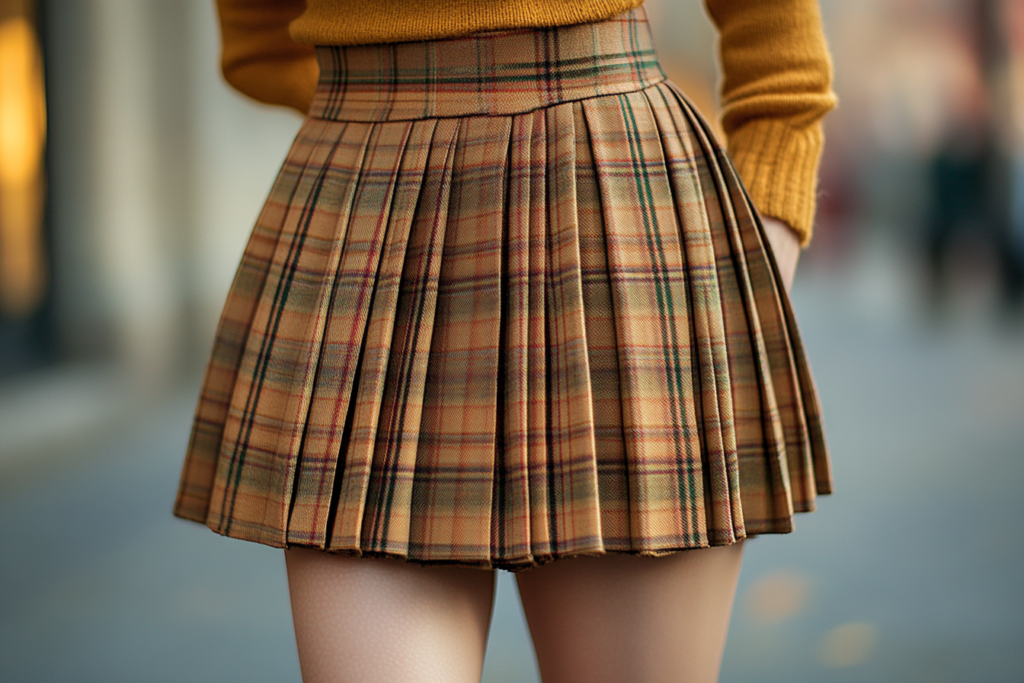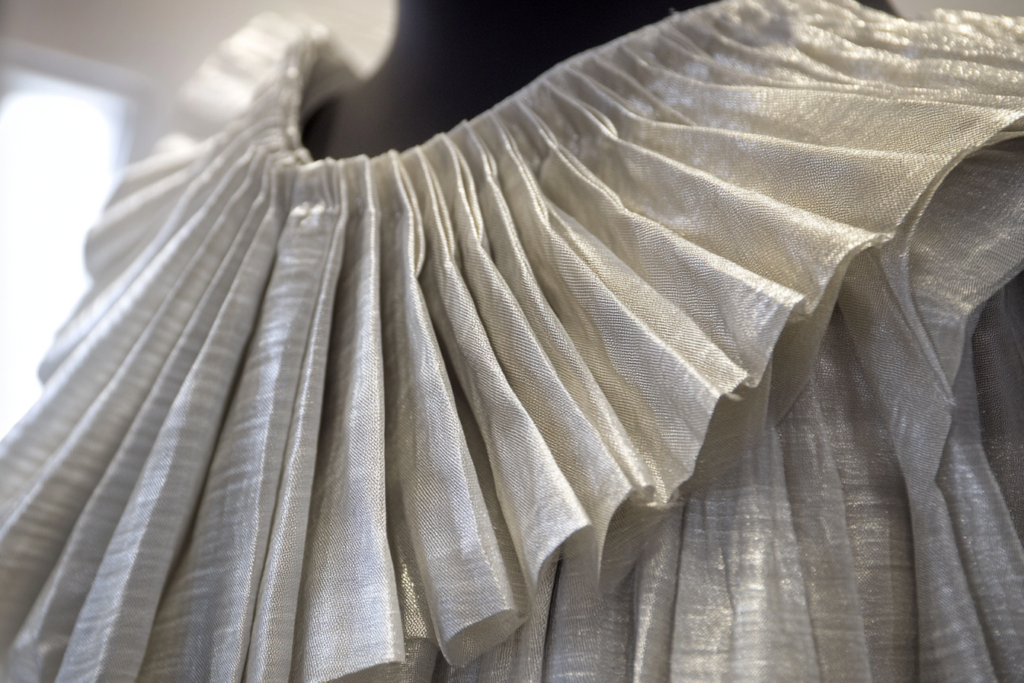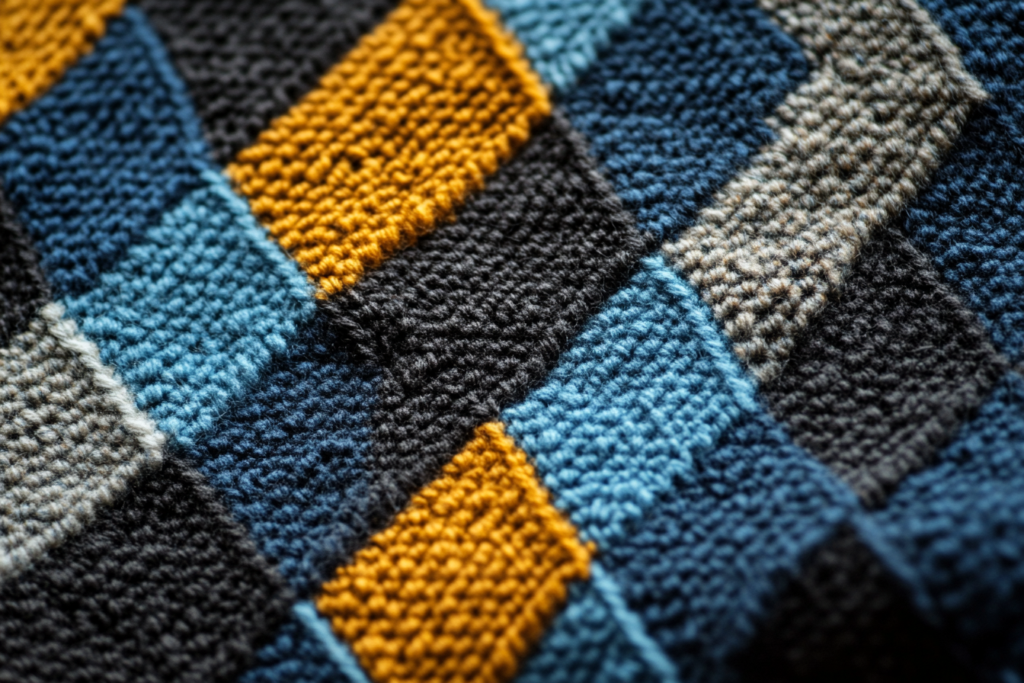Kilt: The Iconic Pleated Skirt with a Checkered Pattern
Meta Description: A kilt is a short, pleated skirt with a checkered pattern, traditionally worn in Scotland. Learn about its history, variations, and modern styling in fashion.
What is a Kilt?
A kilt is a short, pleated skirt featuring a checkered (tartan) pattern, traditionally worn by Scottish Highland men. Made from wool tartan fabric, kilts have become a symbol of Scottish heritage and are now worn in both formal and casual fashion worldwide.
Modern kilts are also adapted into women’s fashion, punk subcultures, and contemporary streetwear, maintaining their structured, pleated design.
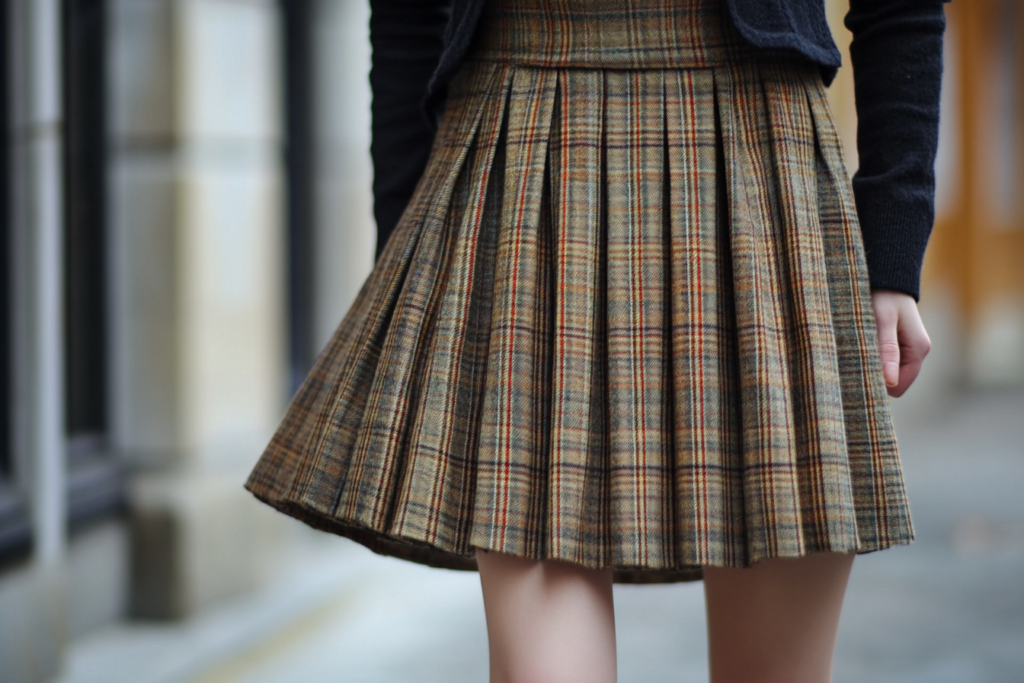
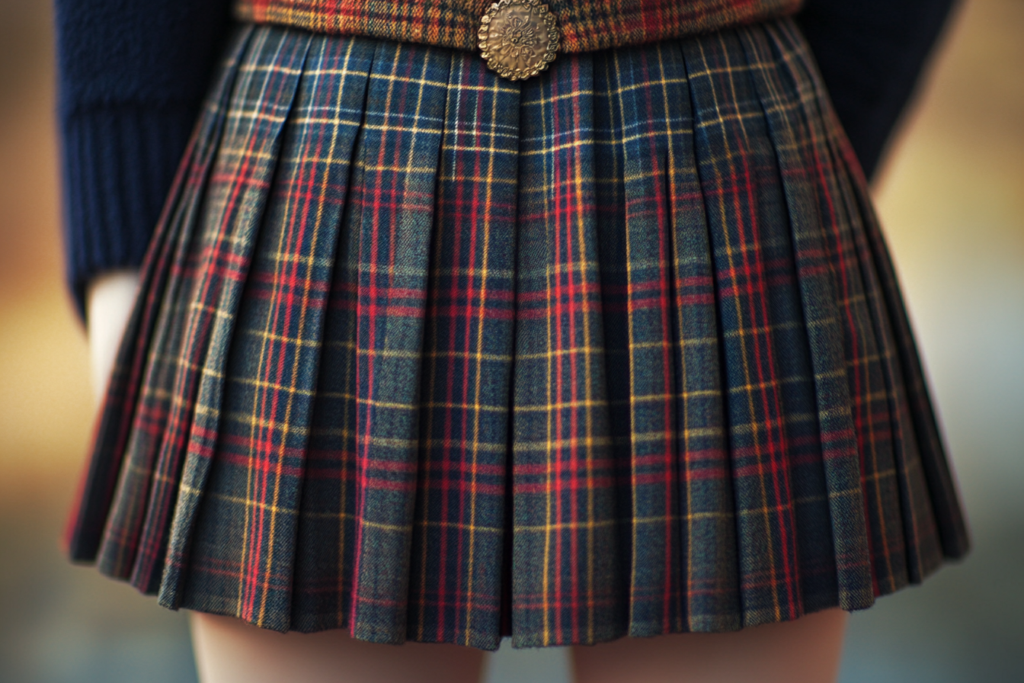
Key Features of a Kilt
✔ Checkered (Tartan) Pattern – Traditionally represents clan heritage in Scotland.
✔ Pleated at the Back – Ensures freedom of movement while maintaining structure.
✔ Wraparound Design – Fastened with buckles, straps, or kilt pins.
✔ Typically Made of Wool – Offers durability and warmth.
✔ Historically a Men’s Garment – Now also worn by women in modern fashion.
The History of the Kilt
1. Origins in Scotland (16th Century)
- The Great Kilt (Feileadh Mòr) was a full-length draped garment, belted and worn over the shoulder.
- Worn by Scottish Highland warriors for mobility and weather protection.
2. The Modern Kilt (18th Century Onward)
- The shorter, knee-length kilt (Feileadh Beag) emerged, resembling today’s kilt.
- Became a symbol of Scottish pride and military regiments.
- Different tartan patterns represented specific Scottish clans.
3. The Kilt in Modern Fashion (20th–21st Century)
- Worn for formal Scottish events, Highland games, and national celebrations.
- Adopted into women’s fashion, punk subcultures, and runway trends.
- Modern kilts now include leather, denim, and utility styles beyond traditional tartan.
Traditional vs. Modern Kilts
| Feature | Traditional Kilt | Modern Kilt |
|---|---|---|
| Material | Wool | Wool, cotton, leather, or synthetic fabrics |
| Length | Knee-length | Varies (mini, knee, or longer) |
| Pattern | Tartan (checkered) | Tartan, solid, leather, or custom prints |
| Wearers | Primarily men (historically) | Both men and women |
| Use | Formal Scottish attire | Casual, streetwear, punk, and fashion trends |
While traditional kilts maintain Scottish heritage, modern kilts are versatile, appearing in fashion-forward and alternative styles.
Where Are Kilts Worn Today?
📌 Scottish & Celtic Festivals – Symbol of Scottish pride and Highland traditions.
📌 Formal Events – Worn with sporrans, jackets, and knee-high socks for ceremonies.
📌 Punk & Alternative Fashion – Mini kilts in plaid, leather, and edgy styles.
📌 Streetwear & Casual Fashion – Styled with boots, sneakers, and oversized shirts.
📌 Sports & Dance Performances – Used in Highland dancing and athletic events.
How to Style a Kilt
🖤 Classic Scottish Look → Wear a traditional tartan kilt with a crisp shirt, sporran, and knee-high socks.
🖤 Casual Streetwear → Pair a mini kilt with a graphic tee, sneakers, and a denim jacket.
🖤 Punk Rock Style → Choose a black or red plaid kilt with combat boots and a leather jacket.
🖤 Modern Chic Look → Style a pleated kilt with a fitted turtleneck and ankle boots.
Why Choose a Kilt?
✔ Rich in Heritage & Tradition – A symbol of Scottish culture.
✔ Comfortable & Functional – Pleats provide movement and breathability.
✔ Versatile for Different Styles – Works for formal, punk, and casual outfits.
✔ Timeless Fashion Statement – Worn for centuries yet still relevant today.
Conclusion: The Kilt’s Enduring Legacy in Fashion
From its Scottish Highland origins to runway collections and punk streetwear, the kilt remains a bold, stylish, and symbolic garment. Whether worn for cultural pride, alternative fashion, or casual styling, kilts continue to evolve while maintaining their classic appeal.
No longer limited to Scotland and formal events, the kilt is now a versatile wardrobe staple embraced by fashion lovers worldwide.
